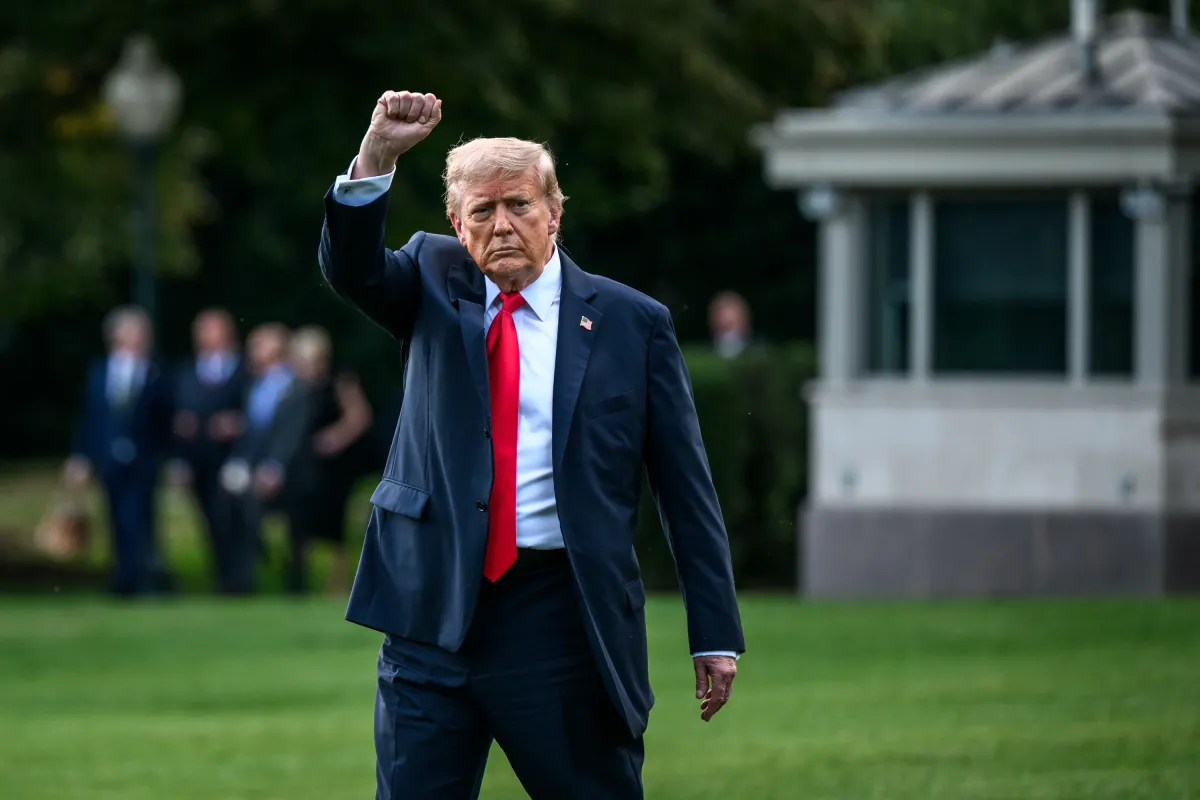A surprising voice emerged on Friday as former Democratic Senator Joe Manchin stunned Fox News viewers by suggesting that only former President Donald Trump has the ability to unite the nation in the wake of Charlie Kirk’s assassination.
The comments, made during a live interview, came as America reels from one of the most polarizing tragedies in recent political history. Kirk’s murder on a college campus earlier this month has only widened the ideological rift between Republicans and Democrats — each side blaming the other for contributing to a climate of hostility.
But in a rare moment of candor, Manchin, who recently retired after more than a decade in the Senate, broke with his party’s rhetoric to voice what many would consider an extraordinary admission: that Trump is the only political figure who could potentially heal the country.
Manchin’s Unexpected Plea for Trump
“President Trump is the person who can basically bring us together,” Manchin told Fox News. His words appeared to catch the host — and much of the audience — off guard.
“I’m praying that he’s able to say ‘listen, enough’s enough. C’mon, we’re all Americans. We’ve gotta live in this world together and our country, and keep it the greatest country on earth,’” he continued.
The remarks immediately ricocheted across political circles, sparking fierce debate over whether a lifelong Democrat’s plea for unity under Trump signals something deeper about the state of American politics.
A Career of Centrist Politics
Manchin, the former governor and senator from West Virginia, has long been known as a centrist dealmaker willing to buck party lines. During his 14 years in Washington, he was often a pivotal swing vote in an increasingly divided Senate.
Since leaving office earlier this year, Manchin has leaned even more heavily into his reputation as a bipartisan voice — though few expected him to go as far as publicly stating confidence in Trump’s ability to unite.
“I believe in him. I believe he can do that,” Manchin said. “And with that being said, he’s able to calm down all this rhetoric right now. And for those who want to still spew it? That’s fine, it’s gonna show you being on the extreme.”
The Political Firestorm Over Kirk’s Assassination
Kirk, just 31, was gunned down while speaking with students earlier this month. The murder immediately turned into a political lightning rod, with Republicans accusing Democrats of fueling hatred by labeling conservatives as “fascists” and “Nazis.”
Democrats countered by pointing to Trump’s rhetoric, insisting his words have incited right-wing violence.
That tension spilled directly into Congress this week.
Rep. Rashida Tlaib (D-Mich.) reignited debate by declaring Republicans were indeed embracing fascism, saying it was “not a bad word” if accurate.
Rep. Byron Donalds (R-Fla.) shot back in a fiery clash that forced the committee chair to call for order.
Even a moment of silence for Kirk dissolved into shouting, with Rep. Lauren Boebert (R-Colo.) yelling across the aisle: “You caused this!” while Democrats shouted back: “Pass some gun laws!”
The acrimony has highlighted just how deep the divide remains, even as millions of Americans seek reflection and healing after the tragedy.
AOC Escalates the Debate
The controversy deepened further when Rep. Alexandria Ocasio-Cortez (D-N.Y.) used a floor speech to oppose a resolution honoring Kirk. In her remarks, she painted Kirk as divisive, even accusing him of promoting bigotry.
“The majority proceeded with a resolution that brings great pain to the millions of Americans who endured segregation, Jim Crow, and the legacy of bigotry,” AOC said.
She further alleged Kirk had downplayed violent attacks, mocked Jewish influence in American institutions, and opposed civil rights legislation.
Republicans blasted her speech as character assassination, while Democrats defended it as necessary context. Either way, it ensured that Kirk’s memory — and the political battles surrounding his death — remain a central topic in Washington.
Could Trump Really Be a Unifier?
Manchin’s assertion that Trump could unify the nation is not without irony. Trump’s presidency was one of the most polarizing in modern history, marked by constant clashes with the media, Democrats, and even factions within his own party.
But Manchin’s appeal suggests a belief that Trump’s outsized influence — particularly among Republicans and independents — gives him a unique opportunity to reset the tone.
Political analysts are split. Some argue Manchin’s words reflect a deep concern that America is reaching a breaking point. Others suggest it’s a warning to Democrats that their own rhetoric may be alienating key voters in the middle.
America’s Divide on Full Display
The fight over Kirk’s legacy has underscored the reality: the nation is more polarized than ever. What should have been a moment of national mourning has instead become another stage for partisan attacks.
Manchin’s call for Trump to act as a bridge comes at a time when trust in political institutions, the media, and even in one another is near record lows. Whether Trump embraces that challenge — or uses the moment to sharpen his attacks on Democrats — could shape the 2024 election landscape and beyond.
Conclusion
The assassination of Charlie Kirk has already reshaped America’s political discourse. But it was Manchin’s words — an unexpected endorsement of Trump as a unifying figure — that may prove to be the most surprising twist yet.
Whether Americans agree or not, his comments highlight a longing for leadership that can transcend the shouting and finger-pointing consuming Washington.
“Enough’s enough,” Manchin said. “We’re all Americans.”

James Jenkins is a celebrated Pulitzer Prize-winning author whose work has reshaped the way readers think about social justice and human rights in America. Raised in Atlanta, Georgia, James grew up in a community that instilled in him both resilience and a strong sense of responsibility toward others. After studying political science and creative writing at Howard University, he worked as a journalist covering civil rights issues before dedicating himself fully to fiction. His novels are known for their sharp, empathetic portraits of marginalized communities and for weaving personal stories with broader political realities. Jenkins’s breakout novel, Shadows of Freedom, won national acclaim for its unflinching look at systemic inequality, while his more recent works explore themes of identity, resilience, and the fight for dignity in the face of oppression. Beyond his novels, James is an active public speaker, lecturing at universities and participating in nonprofit initiatives that support literacy and community empowerment. He believes that storytelling is a way to preserve history and inspire change. When not writing, James enjoys jazz music, mentoring young writers, and traveling with his family to explore cultures and stories around the world.









